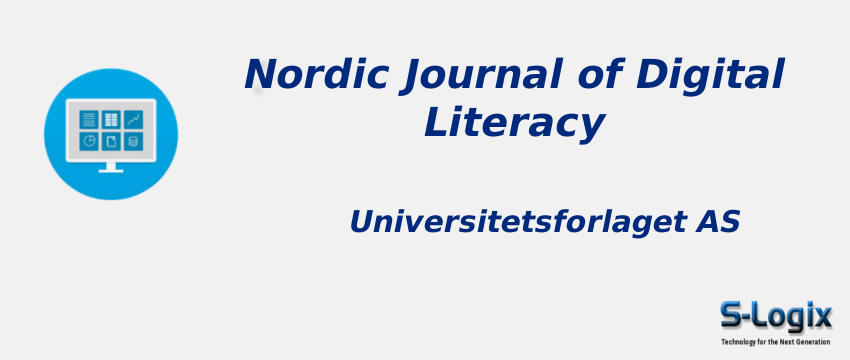Journal Home: Journal Homepage
Editor-in-Chief: Rune Johan Krumsvik
Print ISSN: 0809-6724
Electronic ISSN: 1891-943X
Abstracting and Indexing: Scopus
Imapct Factor :
Subject Area and Category: Computer Science, Computer Science Applications, Social Sciences, Education, E-learning
Publication Frequency:
H Index: 25
Q1:
Q2: Computer Science Applications
Q3:
Q4:
Cite Score: 3.7
SNIP: 0.819
Journal Rank(SJR): 0.519
Latest Articles: Latest Articles in Nordic Journal of Digital Literacy
Guidelines for Authors: Nordic Journal of Digital Literacy Author Guidelines
Paper Submissions: Paper Submissions in Nordic Journal of Digital Literacy
Publisher: Universitetsforlaget AS
Country: Norway
